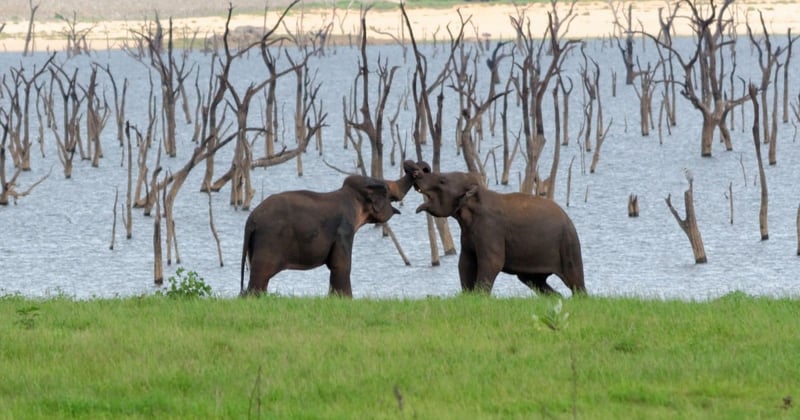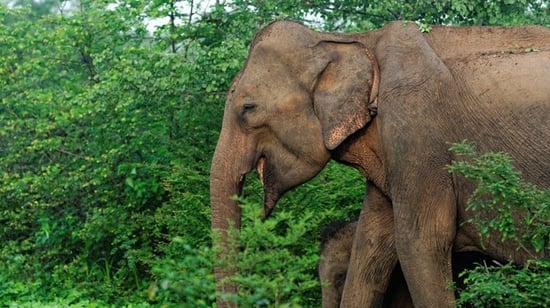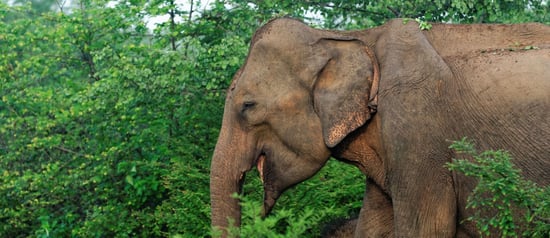
Chinese travel companies join the movement to end elephant rides and shows
News
Three travel companies in China, including one of the largest in the country, have signed our elephant-friendly tourism pledge, leading the way for more to follow
With the captive elephant industry in Asia continuing to grow, we need more travel companies to take a stand and help curb cruel elephant entertainment.
Following discussions with our office in China and the release of our Taken for a ride report, CAISSA Tourism Group, one of the largest travel companies in China, has committed to stop the sale and promotion of elephant rides and shows in South Asian Regions, where most of captive elephants are being used for entertainment.
The announcement was made at an event on August 9 by CAISSA Tourism Group assistant president Ge Mu (right) alongside World Animal Protection’s country director Zhao Zhonghua (left).
“Animal protection is part of our corporate social responsibility. This pledge marks the first step for us and we would like to call for more travel companies and individuals’ attention and effort on wild animal protection” said CAISSA’s assistant president Mrs. Ge Mu.
According to Mrs. Mu, 40% of CAISSA’s business in Southeast Asia comes from elephant rides and shows, representing approximately 100,000 tourists.
“When they saw our research, they wanted to help. It’s not an easy business decision for them to make, but they want to lead the way on animal welfare so that more travel companies can follow,” said Zhao Zhonghua, country director for World Animal Protection’s China office.
In order to make elephants submit to elephant rides and other human interactions, they are forced through a horrific training process that breaks their spirit and instills fear.
CAISSA will begin phasing out their elephant entertainment offerings in India, Sri Lanka and Nepal by November, which will gradually extend to all other countries.
Online travel companies FX Trip (fxtrip.com) and ZANADU Trip (zanadu.com) also committed to be elephant-friendly. FX Trip previously included elephant attractions in all six of its routes to Thailand, which were visited by thousands of Chinese tourists each month.
“Millions of tourists travel to Southeast Asia from China every year. If more travel companies in China stop offering tickets to cruel elephant entertainment, and instead use their influence to spread awareness about the cruelty, they can help break the chain of suffering,” said Zheng Yu, wildlife campaign manager at World Animal Protection’s China office.
“The three travel companies are the first in China to make such a commitment and we hope this leads the way for more to follow.”
Venues that offer tourists a chance to watch elephants in genuine sanctuaries are beacons of hope that can encourage the urgently-needed shift in the captive elephant tourism industry.
To-date, 187 global travel companies have signed our pledge to end the sale and promotion of cruel elephant tourism entertainment, and over 800,000 people across the world have taken action with us to end the cruelties inflicted on wild animals in entertainment.
By making tourists aware of this type of cruelty, we can change the world for elephants.
The three travel companies are the first in China to make such a commitment and we hope this leads the way for more to follow - Zheng Yu, wildlife campaign manager
Elephant facts
Did you know that elephants can live up to 70 years in the wild, however their lifespan in captivity is generally shorter?
Our wildlife work
Around the world, wild animals are being exploited. They’re hunted down, trapped and farmed in captivity, all to be sold and abused for entertainment, medicine, fashion, pets and products.



